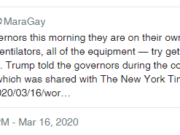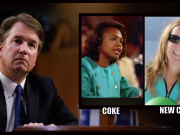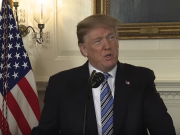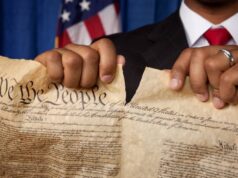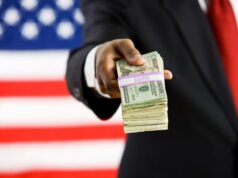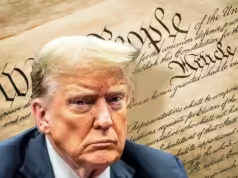In 2017, the Commonwealth’s race for Governor will be in the spotlight. Considered the ultimate “off-year” election, turnout is nearly always at its lowest in this cycle. When turnout is low, Republicans thrive. Still, the GOP in Virginia has not elected a Republican governor since 2009. In 2013, a year that should have favored the GOP, McAuliffe defeated Ken Cuccinelli. That happened as the rest of the country had been leaning back to the GOP since 2010. This year, the GOP has strong choices including Gillespie and Stewart.
Was 2013 an anomaly or a new trend? Conservative Cuccinelli fell victim to a national media campaign against him, a turnout machine in Northern Virginia, and very soft support from national republicans. All of that was too much for even a proven, grassroots candidate like Cuccinelli. The real question about the Cuccinelli loss is whether or not it signaled a demographic sea-change in Virginia that makes the Governor’s races far less predictable. Under an already predictable model, the GOP faces long odds this year in Virginia, even with good candidates.
Not since 1973 had voters in a Virginia governorship race failed to award the election to the opposite party of the prior year’s winning Presidential candidate. Even after Virginia went blue in the post-George W. Bush era, the practice of electing the opposite party continued. In fact, after the landslide win by Obama in 2008, McDonnell won in 2009. But in 2012, Mr. Obama won a close election, and the next year Mr. Cuccinelli lost breaking that trend. With Trump’s win, will Virginia revert to its practice of electing the opposite party? The odds are quite strong for Democrats given both history and the troubling shift in Virginia state-wide elections.
This year, the odds are arguably longer for the GOP. Why? This is now an “uber-backlash” election in a blue state where liberals in Northern Virginia are at the heart of the #resistance movement. In fact, looking at protests and marches in DC, one can see that Metro ridership from the dark blue counties of Virginia and Maryland drove attendance in DC. The left is furious about the Trump election, and the first race it gets to retaliate in will be in the high profile Virginia governorship. Count on anti-Trump national money to pour into the Commonwealth, a state which permits unlimited contributions to its candidates.
The news in this race is not, however, all bad for the GOP. The front-runners for the democrats have no strong name recognition nationally or even in the Commonwealth. Likewise, neither is a particularly strong campaigner. The Republicans, in contract, have a very strong, establishment conservative in the race, as well as Trump-train, grass-roots brawler with a substantial record of success in one of Northern Virginia’s largest counties.
The heavy favorite in this GOP primary race is Ed Gillespie. The former Bush administration official nearly pulled off the greatest upset in Virginia political history when he lost by a razor thin margin to an incumbent Senator and former popular Democratic Governor, Mark Warner.
In 2014, a year of stronger turnout than we will see in 2017, Gillespie lost by only 18K votes. A libertarian candidate siphoned off nearly 53K votes. Warner outspent Gillespie 2.5 to 1. If not for those last two factors, and the ongoing confusion that the “Warner” name causes some GOP voters, Gillespie likely would have won comfortably. But he didn’t. One thing is certain, however, he acquitted himself remarkably well as a campaigner, and he left a strong, positive, image behind.
The vast majority of Virginia republicans and conservatives I know believe Gillespie is the best chance the GOP has to win the governorship. Moreover, most GOP insiders will tell you that had Mrs. Clinton won in 2016, the “backlash” effect likely would have carried Gillespie over the top even in the ever bluing Virginia because he is a strong candidate. Instead, he now faces an uber-backlash effect in a Commonwealth with more democrats … really angry democrats.
Still, the GOP primary will not be a crowning ceremony for Gillespie. Corey Stewart is a formidable foe from a large swing county in which he keeps winning. He also has some unimpeachable street credentials on critical, conservative issues. Already, there is some infighting among well-known, dug-in, no nonsense opinion makers and party activists. For Stewart, he is relentless, and sometimes unpredictable. He is in some ways a conservative in the mold of Cuccinelli for his fighting skills, though Cuccinelli was a doctrine conservative with unmatched credentials on the issues and a penchant for being a happy conservative warrior. Stewart is more of a populist style candidate with a brawler’s charm.
In the conservative base of the Virginia GOP, however, Stewart is deeply respected for his unapologetic fight against illegal immigration. In fact, when many in the Commonwealth, including republicans, gladly turned a blind eye to illegal immigration, Stewart did not. Stewart took on the national media, the DC Press, and his more liberal neighbors when he worked with federal officials under the 287(G) program to help combat illegal aliens in his county.
A full decade before any elected official in the Commonwealth would take a tough stand on illegal immigrants, Stewart stood alone, in traffic, and under fire. His base remembers who danced around the hard issues or ignored them, and who got in the trenches. Corey Stewart loves trench warfare.
That’s leadership.
Virginia republican voters have a real choice, and it is one they cannot make solely on emotion. This will be a rough election, and if the GOP is to stun the nation and capture the Governorship, the GOP will need to choose wisely. Gillespie gives them an optimistic, strong, competent, candidate with wide appeal and credibility in a state-wide election. Stewart gives them a puncher, unafraid to get hit, and always willing to answer the bell. This general election fight, however, is going the distance. GOP voters need to decide who will win this battle on points.
Finally, when Gillespie lost to Warner, he was sold-out by a third-party candidate many thought was engineered and financed from the left. The GOP needs to avoid a repeat of that debacle. More importantly, it needs to heal its activists after this primary. If the party is not united, neither candidate can win. In the back rooms and on the social media sites where candidate’s surrogates take the fight, they need to remember against whom they are battling.
The GOP has two strong choices in Gillespie and Stewart. They offer different strengths. Pick one responsibly in this uber-backlash election.
Author: Richard Kelsey
Richard Kelsey is the Editor-in-Chief of Committed Conservative.
He is a trial Attorney and author of a #11 best-selling book on Amazon written on higher education, “Of Serfs and Lords: Why College Tuition is Creating a Debtor Class”
Rich is also the author of the new Murder-Mystery series, “The ABC’s of Murder,” book one is titled, “Adultery.”
Rich is a former Assistant Law School Dean and Law Professor. At Mason Law Kelsey conceived of, planned, and brought to fruition Mason’s Center for the Protection of Intellectual Property, known as CPIP, drawing on his expertise as a former CEO of a technology company specializing in combating cyber-fraud.
In 2014 he was elected by the graduating class as the faculty speaker at their graduation.
He is a regular commentator on legal and political issues in print, radio and on TV. Rich has appeared on hundreds of stations as a legal expert or political commentator. He provided the legal analysis for all stages of the Bob McDonnell trial and appeal for numerous outlets including NPR and WMAL.
Rich also writes on occasion for the American Spectator and CNSNews.com.
In his free time, Rich is part of the baseball mafia of Northern Virginia, serving on numerous boards and as a little league and travel baseball coach.
His Twitter handle is @richkelsey.









